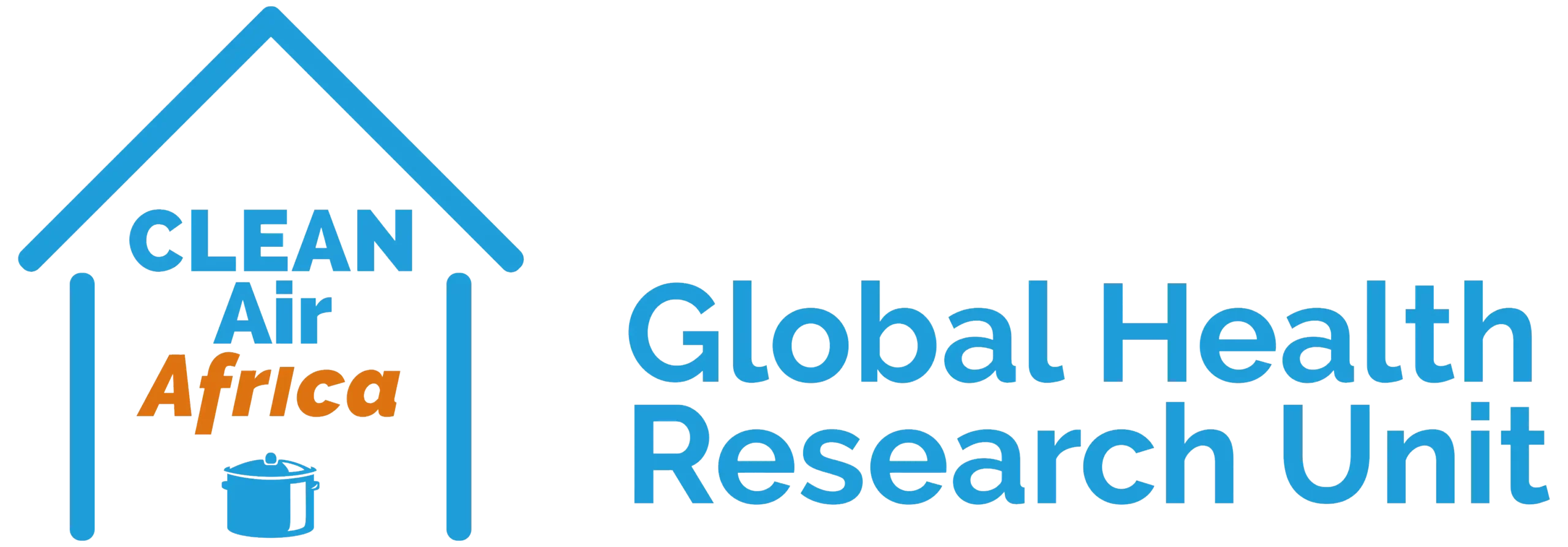About CLEAN-Air(Africa)
The NIHR CLEAN-Air(Africa) Global Health Research Unit is a collaboration of international experts in environmental public health from the UK, Kenya, Cameroon, Tanzania, Rwanda, and Uganda. The partnership implements research, health systems strengthening, and capacity-building activities across the five focus countries with the explicit objective to address the health burden from household and institutional air pollution from reliance on polluting solid fuels (e.g., wood, charcoal, coal, and biomass) and kerosene.
CLEAN-Air(Africa) aims to provide policy-relevant evidence to raise population awareness of the issue and to support prevention through the transition to clean fuels and energy for cooking.
CLEAN-Air(Africa): Main Aims
- To facilitate transition for vulnerable communities and public institutions to clean cooking to address health, environment, climate and gender impacts from reliance on polluting fuels.
- To evaluate chronic and hidden additional health burdens from household air pollution that can be addressed through clean cooking.
- To advocate for disease prevention from reductions in air pollution through national clinical and community health systems strengthening.
- Investing in the future; to develop a sub-Saharan African Air Pollution Centre of Excellence through capacity building, training and investment.
- Maximising impact through community and stakeholder engagement
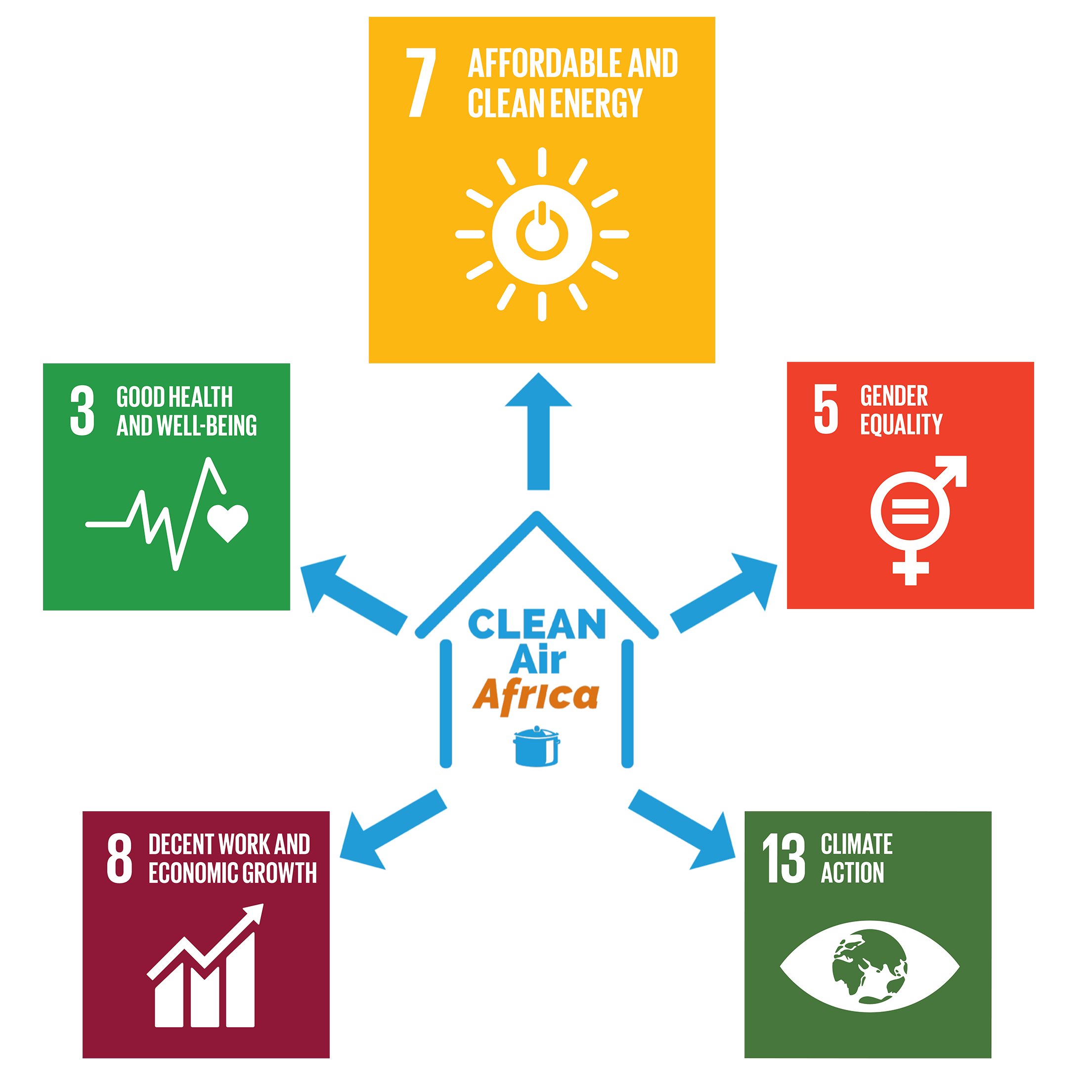
Key activities under CLEAN-Air(Africa)
The Unit builds on research, capacity and health systems strengthening initiated under the NIHR CLEAN-Air(Africa) Global Health Research Group in Cameroon, Kenya and Ghana. The Group was launched in 2018 and has achieved significant impact since this time in three key areas to address the global public health burden from reliance on polluting solid fuels and kerosene for household energy.
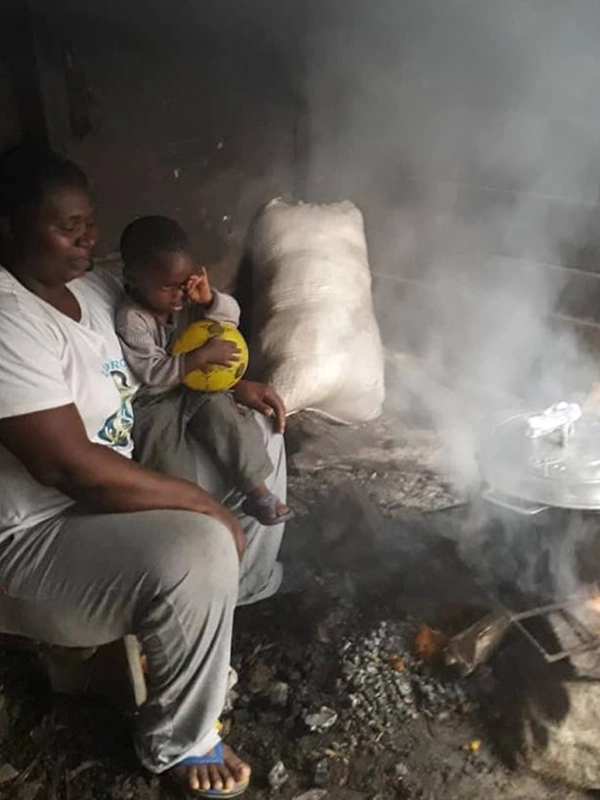
Exposure to household air pollution
Using state of the art monitoring equipment to quantify adult and child health impacts from exposure to air pollution from cooking with polluting fuels
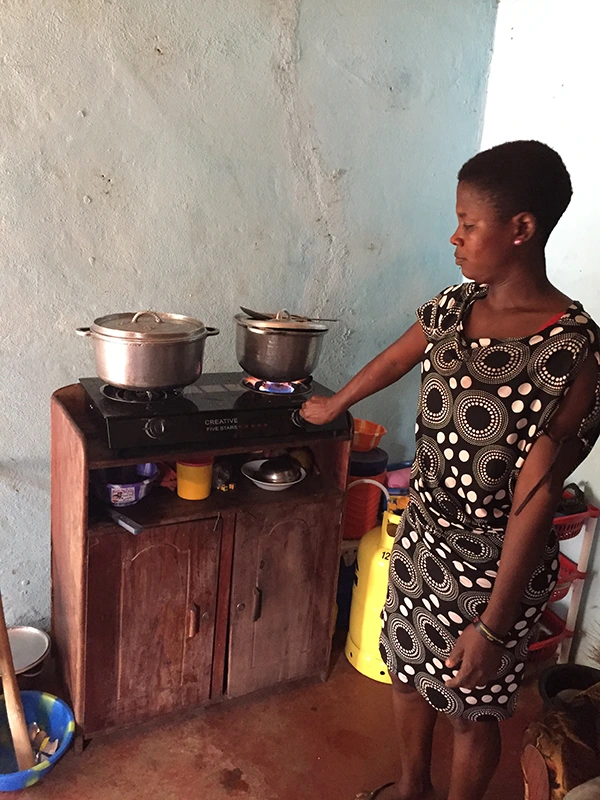
Transition to clean cooking
Identifying and addressing barriers to cooking with clean fuels. Informing clean energy policy in sub-Saharan Africa.
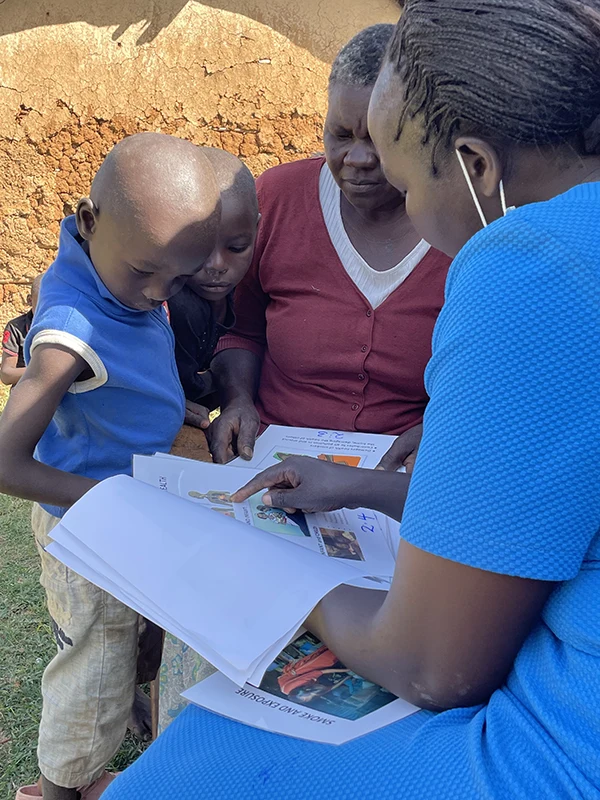
Strengthening health systems
Training clinical and community health workforces in primary and secondary prevention of household air pollution.
Discover how CLEAN-Air(Africa) is working to tackle household air pollution worldwide:
Where we work
CLEAN-Air(Africa) Case Studies
The work of CLEAN-Air(Africa) has been widely disseminated including recently at COP26. Some of the published case studies highlighting the work of CLEAN-Air(Africa) and its impact can be accessed below. This work forms the foundation of the NIHR Global Health Research Unit on CLEAN-Air(Africa).
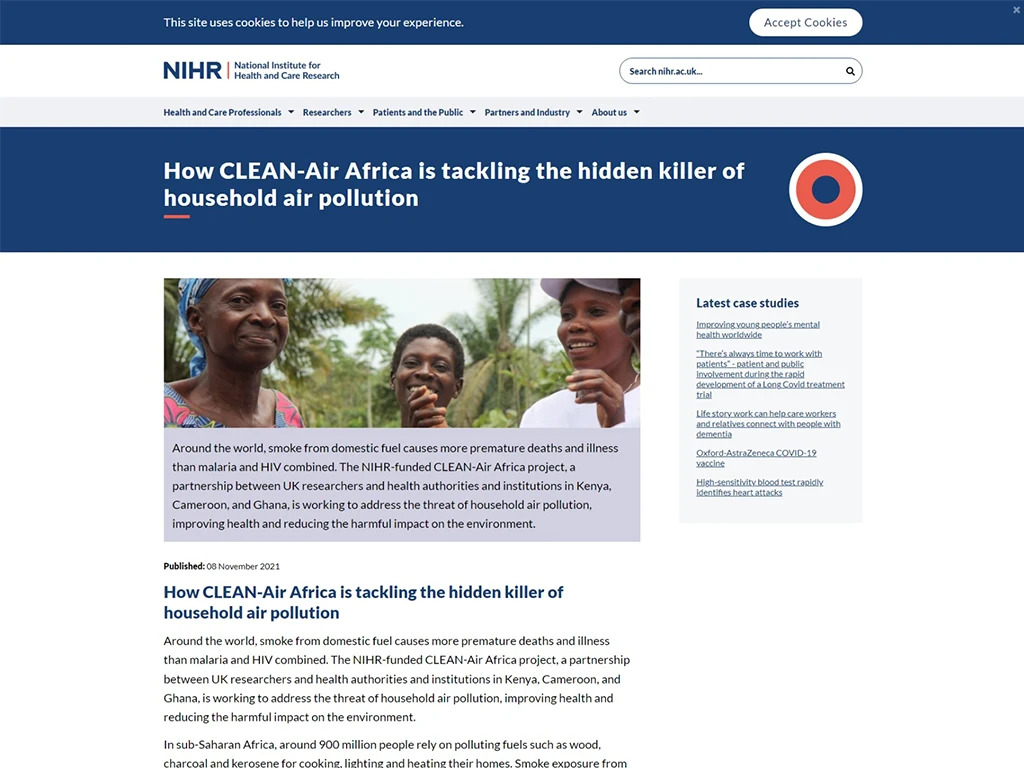
UK NIHR
How CLEAN-Air(Africa) is tackling the hidden killer of household air pollution (Nov 2021)
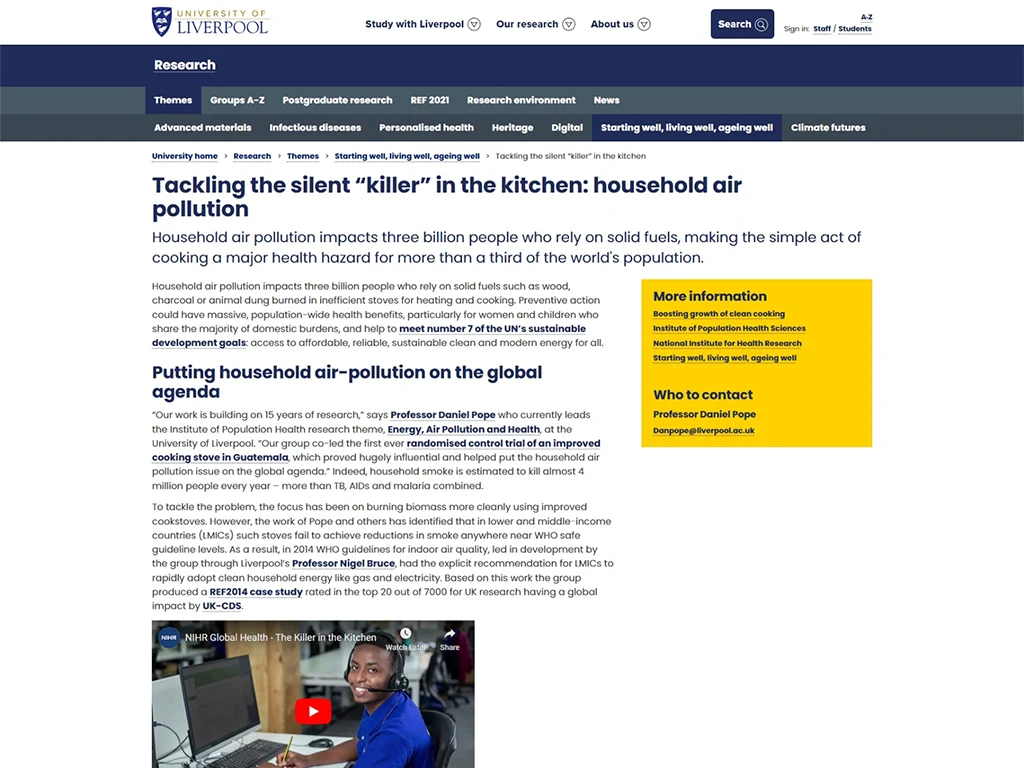
University of Liverpool
Tackling the silent killer in the kitchen: household air pollution (Oct 2021)
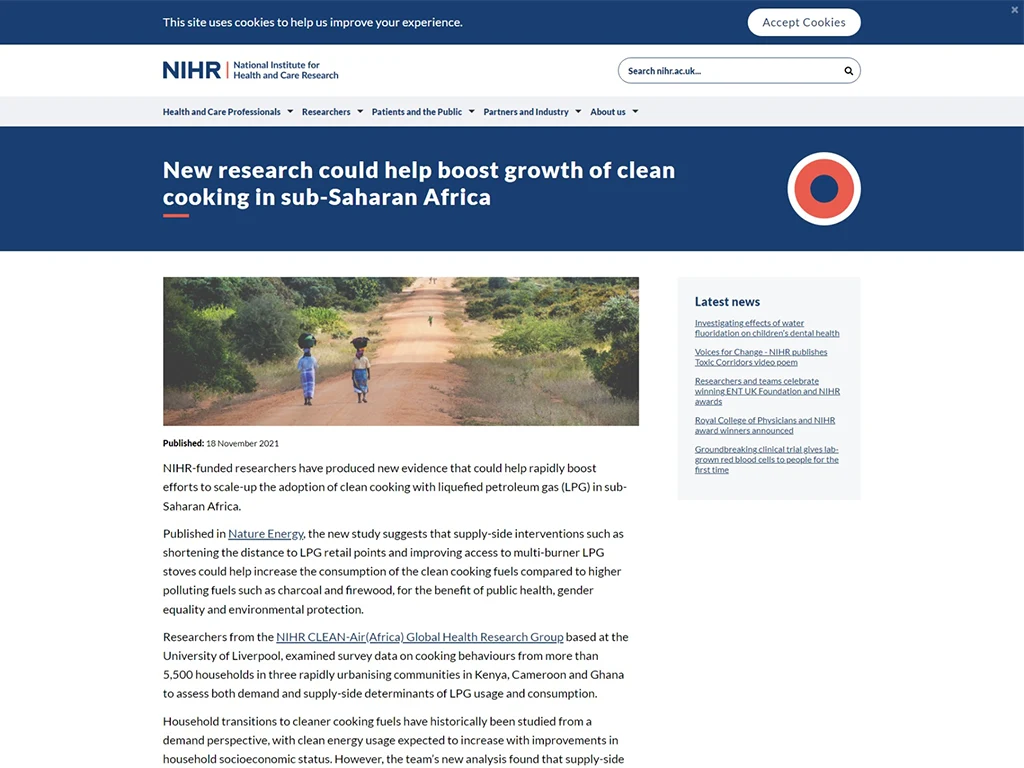
UK NIHR
New research could help boost growth of clean cooking in sub-Saharan Africa (Nov 2021)
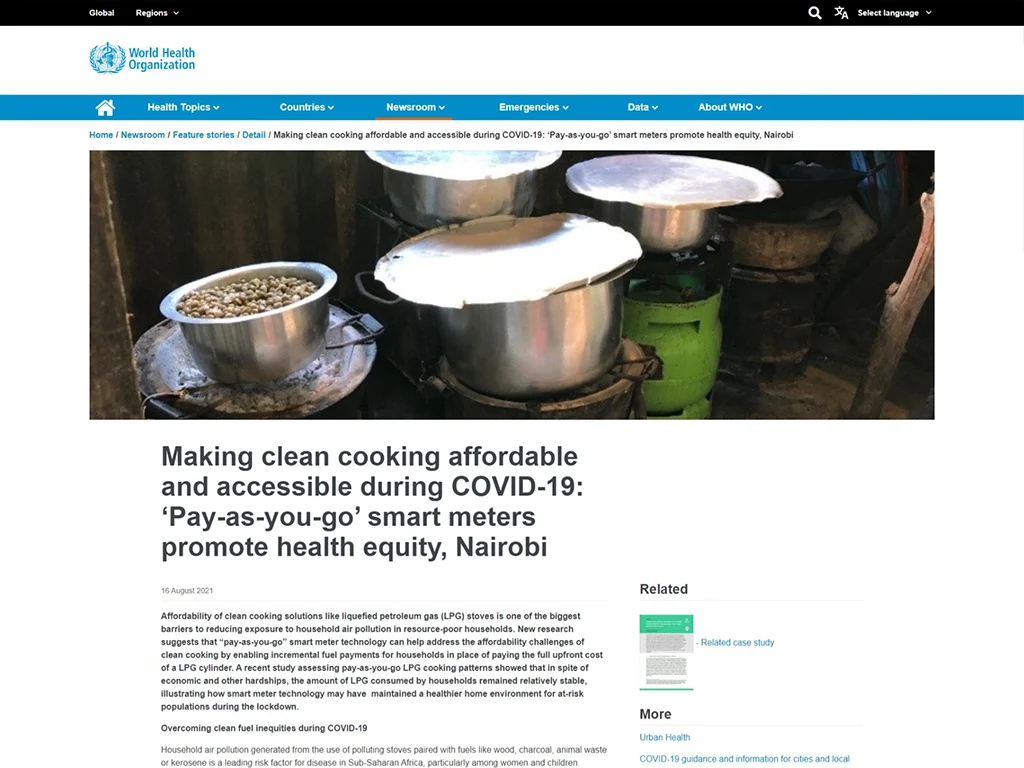
WHO
Making clean cooking affordable and accessible during COVID-19: pay-as-you-go smart meters promote health equity, Nairobi
NIHR Case Study
The NIHR have produced a video showcasing the work of CLEAN-Air(Africa). The video highlights two key initiatives; helping resource poor communities access Liquefied Petroleum Gas for clean cooking through smart meter technology and empowering community health workforces to prevent household air pollution related disease.
CLEAN-Air(Africa) Global Health Research Unit Fact Sheet
2.4 billion people rely on polluting solid fuels and kerosene for household energy.
The NIHR CLEAN-Air(Africa) Global Health Research Unit will accelerate the understanding of air pollution related disease burden through a unique set of studies that will strengthen national health systems for community health prevention of HAP related disease and provide evidence-based recommendations for population transition to clean household and institutional energy.
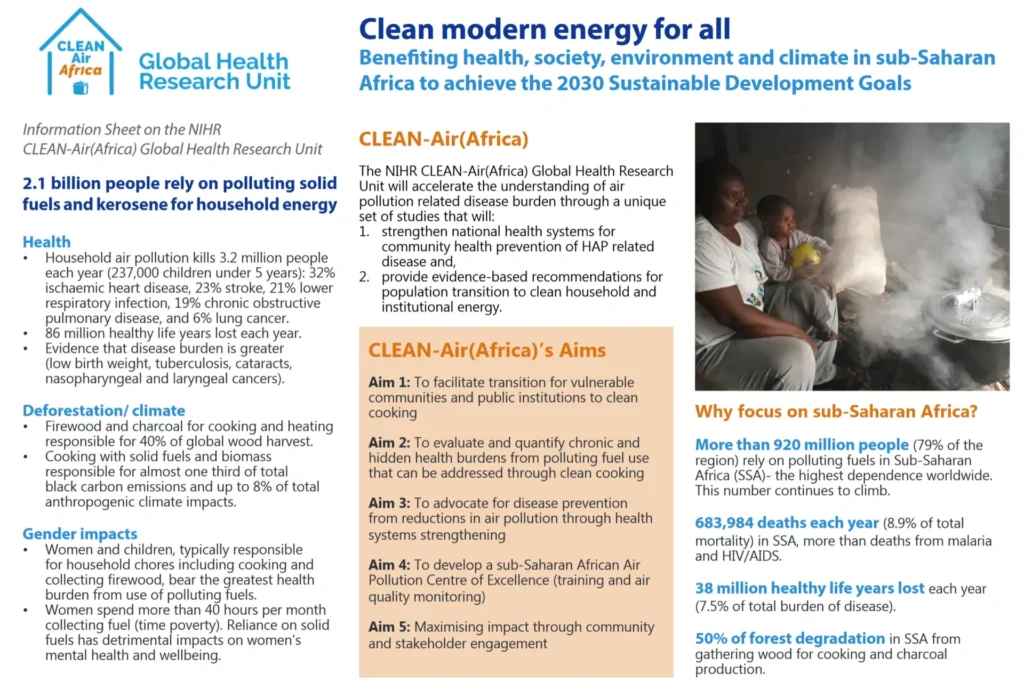
CLEAN-Air(Africa) Global Health Research Unit Newsletters
CAA Unit produces annual newsletters, which are available for you to view using the links on the right.
